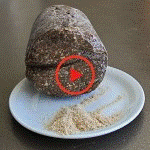Stay Lean Year Round- Olive Oil is Crucial (High Fat Superfood Series)
Health Tags: Crucial, High, Lean, Olive, round, Series, Stay, Superfood, YearNo Comments »
Click Here to Subscribe: http://Bit.ly/ThomasVid
Let’s Talk Pasta for a minute! Use Code DLAUER10 on Natural Heaven Low-Carb Pasta: https://eatnaturalheaven.com/products/angel-hair-veggie-noodles-natural-heaven
This video does contain a paid partnership with a brand that helps to support this channel. It is because of brands like this that we are able to provide the content that we do for free. The best way that you can directly support my channel, is by supporting the brands that help make this all possible. Any product that you see on my channel is a product that I also use personally, regardless of any paid promotion.
Get my Free Newsletter and Downloadable Cheatsheets (eating out, travel, etc): https://www.thomasdelauer.com/life-optimization-tactics/
Follow More of My Daily Life on Instagram: http://www.Instagram.com/ThomasDeLauer
Stay Lean Year Round- Olive Oil is Crucial (High Fat Superfood Series)- Thomas DeLauer
Special Thanks to my team and Nicholas Norwitz – Oxford PhD Researcher and Harvard Med Student – for working diligently on research as well!
It’s important that I am honest and to say that this video does have a sponsorship from Natural Heaven, supporting them is a good way to support my channel!
MUFA, Oleic Acid, OEA
The MUFA, oleic acid, is the main fatty acid in olive oil. The name, “oleic acid” comes from the Latin, “oleum” meaning “oil.” Basically, I’m saying that EVOO is the original gangster (OG) of oils.
Oleoylethanolamine (OEA) synthesis: Dietary oleic acid is converted into OAE through the two-step “transacylation-phosphodiesterase pathway.” First, oleic acid is converted into N-oleoyl-phosphatidylethanolamine (NOPE) by the enzyme NAT, then NOPE is converted into OAE by the enzyme NAPE-PLD. The synthesis of OEA occurs in the small intestine, liver, and within most peripheral tissues. In fact, it’s been suggested that the reason plasma OEA correlates with oleic acid consumption is not because OEA is being produced in the intestines/liver and being transported, but rather than OEA can spill over into the bloodstream after being synthesized from oleic acid by peripheral tissues.
OEA signaling: OEA binds the transcription factor PPARα, which causes PPARα to form a heterodimer with RXR that binds to PPARα response elements on DNA and increases the expression of several genes, including those involved in lipid transport, β-oxidation, lipoprotein uptake, etc. Specifically, PPARα increases the expression of the fat transporter protein CD36 and uncoupling (fat-browning) protein UCP-2 to increase fat burning. OEA also binds the TRPV1 receptor the stimulation of which sends a satiety signal from the gut to the brain via the Vagus nerve. Interestingly, it appears that the cuddle hormone, oxytocin, is important in this mechanism. The Vagus nerve talks to the nucleus of the solitary tract in the hypothalamus, stimulating oxytocin release and inducing satiety.
OEA knockout rats: Rats lacking the enzyme, NAPE-LD, that makes OEA from oleic acid exhibit obesity, insulin resistance, increased cholesterol and triglycerides, increased inflammation, and an impaired fat browning in response to cold.
Progress in Lipid Research 2017, Review https://www.ncbi.nlm.nih.gov/pubmed/28389247
Polyphenols (Oleocanthal & Hydroxytyrosol)
EVOO contains at least 36 different antioxidant polyphenols. It’s impossible to concisely characterize the benefits of all 36, so we will discuss just two examples: oleocanthal and hydroxytyrosol.
Oleocanthal
Inflammation. Oleocanthal inhibits the pro-inflammatory COX enzymes that contribute to a wide manner of inflammatory diseases Nature 2005 https://www.nature.com/articles/437045a
Alzheimer’s: https://www.ncbi.nlm.nih.gov/pubmed/19631677
Alzheimer’s: https://www.ncbi.nlm.nih.gov/pubmed/19549281
Hydroxytyrosol
Hydorxytyrosol is another phenolic compound found at high levels in EVOO. It is among the strongest antioxidants found in nature, with 10-times the antioxidant power of green tea.
Refined olive oils and fake EVOOS contain only about 10% the hydroxytyrosol as found in true EVOO.
Hydroxytyrosol concentrations in olives vary by variety. Greek black olives contain 100-340 mg/kg, whereas Greek kalamata olives contain 250-750 mg/kg.
Heart. The European Food & Safety Authority has stated that hydroxytyrosol protects the cardiovascular system and prevents atherosclerosis.
Brain. Hydroxytyrosol protects against Alzheimer’s and Parkinson’s disease by crossing the blood-brain barrier and protecting the brain’s precious fats from oxidation.
Cancer. Consumption of 50 µM–100 µM hydroxytyrosol, from EVOO or olives, has been shown to inhibit the growth of leukemia, adenocarcinoma, colon cancer, and breast cancer cells.
Medicines 2018 https://www.ncbi.nlm.nih.gov/pmc/articles/PMC5874578
Nicholas Norwitz – Oxford PhD Researcher and Harvard Med Student:
https://www.dpag.ox.ac.uk/team/nicholas-norwitz
Take in the divine aroma of quality Italian cuisine at the Fat Olive Restaurant! Owner, Dino Dassie has taken his passion of Italian cooking and turned it into a thriving business, opening the doors to Fat Olive with his wife, Carla in 2019. The restaurant takes pride in the traditional style of cooking; offering local, quality and fresh ingredients in staple dishes like basil pesto, chicken parmigiana, fettucine alfredo, and Stromboli.





























































